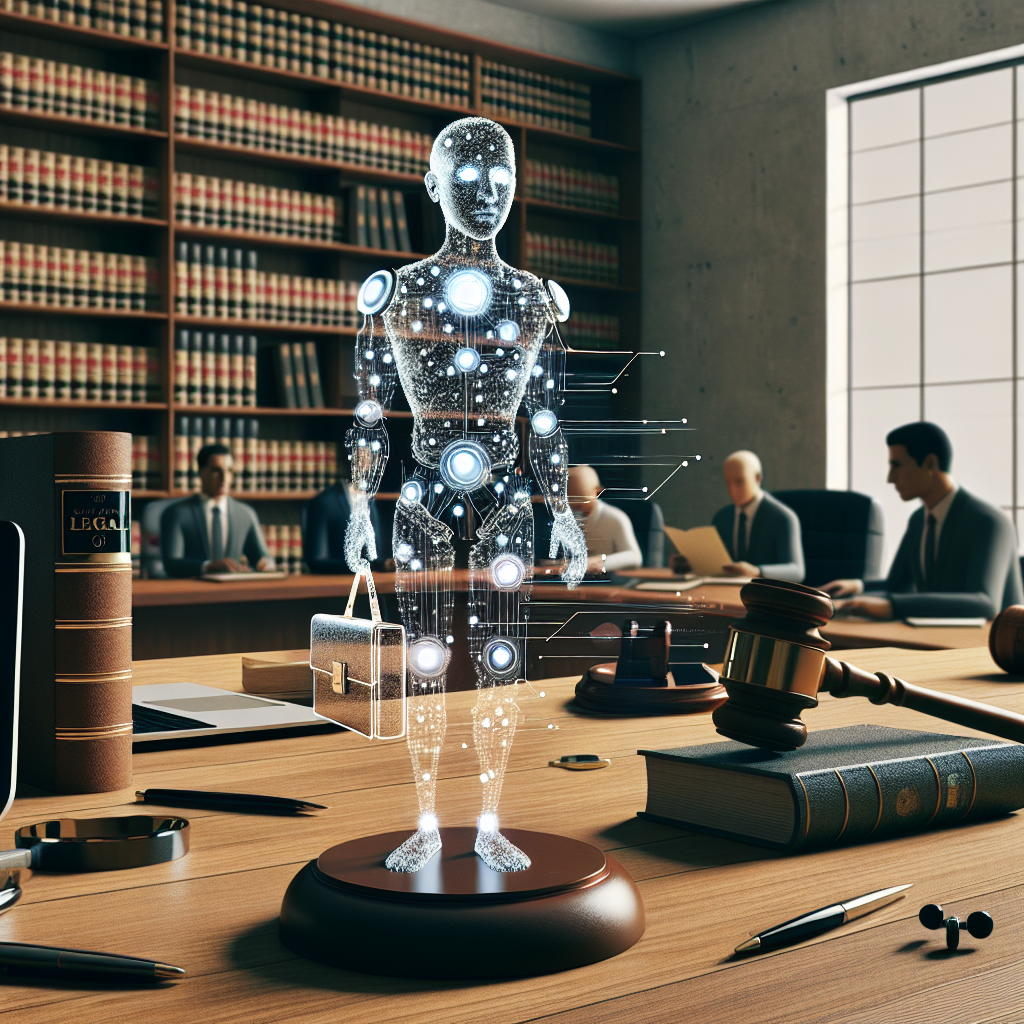The Impact of Artificial Intelligence on the Legal Industry
Artificial Intelligence (AI) has been making waves across various industries, and the legal sector is no exception. With the advancement of AI technology, law firms and legal professionals are embracing AI tools to streamline processes, increase efficiency, and improve client service. From legal research to contract analysis, AI is revolutionizing the way legal services are delivered.
AI in Legal Research
One of the most significant impacts of AI in the legal industry is in the field of legal research. Traditionally, legal research involved hours of sifting through case law, statutes, and other legal documents to find relevant information for a case. However, with AI-powered legal research tools, lawyers can now access vast databases of legal information and quickly find relevant cases, statutes, and other legal materials.
AI tools like ROSS Intelligence and Lex Machina use natural language processing and machine learning algorithms to analyze and categorize legal documents, making it easier for lawyers to find relevant information quickly. These tools can also provide insights and recommendations based on past cases and outcomes, helping lawyers make more informed decisions.
Contract Analysis and Due Diligence
Another area where AI is making a significant impact in the legal industry is in contract analysis and due diligence. AI-powered contract analysis tools can review and analyze contracts quickly, identifying key provisions, potential risks, and inconsistencies. This can save lawyers hours of manual review and help them identify potential issues before they become problems.
AI tools can also assist with due diligence in mergers and acquisitions by quickly scanning and analyzing large volumes of documents to identify potential risks and liabilities. This can help lawyers streamline the due diligence process and ensure that all relevant information is considered before a deal is finalized.
Predictive Analytics and Legal Decision-Making
AI is also being used in the legal industry to provide predictive analytics and assist with legal decision-making. By analyzing past cases and outcomes, AI tools can help lawyers predict the likely outcome of a case, enabling them to make more informed decisions on strategy and settlement options.
AI tools can also help lawyers identify patterns and trends in legal cases, enabling them to spot potential issues early and develop strategies to address them. This can help lawyers provide better advice to clients and improve the overall quality of legal services.
Challenges and Ethical Considerations
While AI has the potential to revolutionize the legal industry, it also presents challenges and ethical considerations that need to be addressed. One of the main challenges is the potential for bias in AI algorithms. AI tools are only as good as the data they are trained on, and if that data is biased or incomplete, it can lead to biased outcomes.
Another challenge is the impact of AI on the job market for legal professionals. As AI tools become more sophisticated, there is a concern that they could replace some tasks currently performed by lawyers, leading to job displacement. However, many experts argue that AI will enhance the work of lawyers rather than replace them, freeing them up to focus on more strategic and high-value tasks.
There are also ethical considerations surrounding the use of AI in the legal industry, particularly in areas like data privacy and confidentiality. Lawyers have a duty to protect client information and ensure that it is not improperly disclosed, and AI tools must be designed with these ethical considerations in mind.
FAQs
Q: How is AI being used in legal research?
A: AI-powered legal research tools use natural language processing and machine learning algorithms to analyze and categorize legal documents, making it easier for lawyers to find relevant information quickly.
Q: What are some examples of AI tools used in the legal industry?
A: Examples of AI tools used in the legal industry include ROSS Intelligence, Lex Machina, and contract analysis tools that can review and analyze contracts quickly.
Q: What are some of the challenges and ethical considerations surrounding the use of AI in the legal industry?
A: Challenges and ethical considerations surrounding the use of AI in the legal industry include the potential for bias in AI algorithms, job displacement for legal professionals, and ethical considerations surrounding data privacy and confidentiality.
In conclusion, AI is having a significant impact on the legal industry, transforming the way legal services are delivered and improving efficiency and client service. While there are challenges and ethical considerations to address, the potential benefits of AI in the legal industry are vast. As AI technology continues to evolve, it will be interesting to see how it shapes the future of the legal profession.

